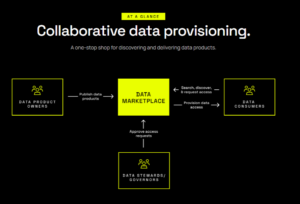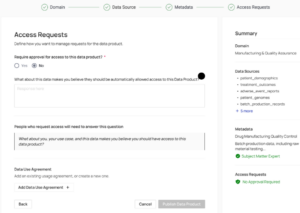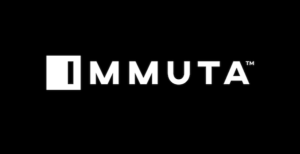(Tapati Rinchumru/Shutterstock)
Data platforms like Snowflake and Databricks provide customers with extremely powerful tools for building data products. However, getting these data products into the hands of data consumers is can be exceedingly complex. That’s what led Immuta today to launch a new Data Marketplace solution, which it says will streamline user access to data products while adhering to security and governance.
Immuta made a name for itself by providing powerful data governance and security tools that are used by some of the biggest organizations in the world, such as Roche, the United States Air Force, and Thomson Reuters. By enabling data owners to discover sensitive data and then define, enforce, and monitor fine-grained data access policies across multiple systems, Immuta gives customers the confidence to utilize sensitive their data while minimizing the odds that unauthorized users will access and misuse it.
One of the data challenges that Immuta customers commonly run into is navigating the data access approval workflow. As a data governance and security tool, Immuta sits atop the data platforms–such as Databricks, Snowflake, Google Cloud BigQuery, AWS’ Amazon Redshift, Starburst, and Microsoft Azure Synapse Analytics–that house customers’ data and enable teams of data analysts and data scientists to use that data with analytics and AI systems. But not all customers use Immuta in the same way, and complexity increases when they use other tools to discover, access, and provision access to data.
That’s what inspired Immuta to launch the new Data Marketplace solution. According to Immuta CTO Steve Touw, the offering is an extension of Immuta’s existing data governance and security capabilities that allows customers to build their own data marketplaces, thereby cutting through that data access complexity and providing a streamlined workflow instead.

Immuta Data Marketplace provides data consumers a way to access curated data products (Image courtesy Immuta)
“This expansion was inspired by many of our existing customers that were building marketplaces on top of Immuta, and using Immuta just for data access provisioning,” Touw said. “This was leading to extremely complex architectures with different steps for publishing data products, finding data products, requesting access, approving access, and finally provisioning access. Immuta aims to make this all more seamless by introducing plug-and-play components for each of these tasks, which allows customers to use as much or as little of what Immuta offers as they’d like. APIs mean the Immuta marketplace components can integrate with different existing marketplace tooling, as desired.”
Immuta’s Data Marketplace solution is designed to be used by data consumers who need access to pre-built data products to accomplish some business task within a certain domain (such as supply chain and logistics or genomics and precession medicine), as opposed to the folks who are building the data products themselves, Touw said. The software also provides facilities to help data builders share their data products they built via the internal data marketplaces that Immuta’s software helps them to set up.
The new Data Marketplace solution utilizes the underlying data security and access controls that are built into the core Immuta platform, the company says. The solution enables data owners across an organization to grant permission to share data products with their users. Those users can then explore the available data products through the Data Marketplace GUI, which can be configured with the organization’s logos and colors.

Data stewards can approve or deny data access requests in the Immuta Data Marketplace (Image courtesy Immuta)
When a user finds a data product they would like to use in the Marketplace GUI, they can request access to the product, which automatically kicks off the approval workflow according to the requirements that were previously set up by the data managers, according to Touw. It also supports applying time limits, such as users can only access the data for five days, he said.
Touw likens internal data marketplaces to app stores that Android and iPhone users are familiar with.
“Once an app is created, it is published to the App Store so consumers can use–and sometimes buy–them,” Touw told BigDATAwire via email. “You, the consumer, search the App Store to find apps that will be helpful or entertaining to you, you request to download them, they are provisioned to your phone, and then you use them.
“Data products should be treated no differently than apps,” he continued. “They should have a vision and a product roadmap that spans from idea to R&D, release, maintenance, and retirement.”
Asked how the Immuta Data Marketplace differs from a data catalog, Tuow responded by saying that a data marketplace may share some similarities with a data catalog. And the Immuta Data Marketplace can integrate with existing data catalogs to handle certain steps in the data access workflow, such as publishing data products, he said.
However, one important distinction between the two product types is that a data catalog is focused more on the data product builders, who must track the lineage and observability of data inventory, as well as tests, metrics, reliability, quality, sensitivity, classification, and handling procedures, Touw said. Data marketplaces, on the other hand, are designed to enable data consumers to access data products.
“Consumers thirst for valuable data products,” he said. “And if there was a way to simply find them and understand how they provide value, consumers would use them. This is what a data marketplace is for.
“Marketplaces may be termed data mesh or data exchanges, but are the same in principle–each is meant to facilitate the discovery and delivery of data products within your organization,” he continues. “Data product delivery, or provisioning, is key to a marketplace. A true data marketplace supports approval workflows and will provision data access controls that apply direct grants to your data platform(s) at request fulfillment time, providing near-real-time access upon approval, similar to how apps are delivered through the app store.”
One early adopter of the Immuta Data Marketplace is booking.com, the popular travel website. According to Abhro Bhaduri, the group product manager for the Data & ML Platform at the company, the Immuta software streamlines access to data residing in different systems.
“In order to build a connected trip experience for our travelers, data silos across the business had to be eliminated,” Bhaduri said in Immuta’s press release. “Attribute- and purpose-based fine-grained access control was central in building a safe and governed experience, where our customers could interact with various products across the business in a truly seamless and connected fashion through our internal data marketplace (BDX).
“Immuta is revolutionary in the way that it allows our data producers to enforce additional fine-grained access controls within the permission boundaries defined by Booking.com’s global DataGov functions, allowing business units to reduce the time to value while processing data at scale, in a secure, governed and compliant fashion,” he continued.
Immuta’s Data Marketplace is available now. For more info, check out www.immuta.com.com.
Related Items:
Making the Leap From Data Governance to AI Governance
Immuta Report Shows Companies Are Struggling to Keep Up with Rapid AI Advancement
GenAI Is Putting Data in Danger, But Companies Are Adopting It Anyway
Data Access Bottlenecks Lead to Missed Opportunities: Immuta
Source link
lol

